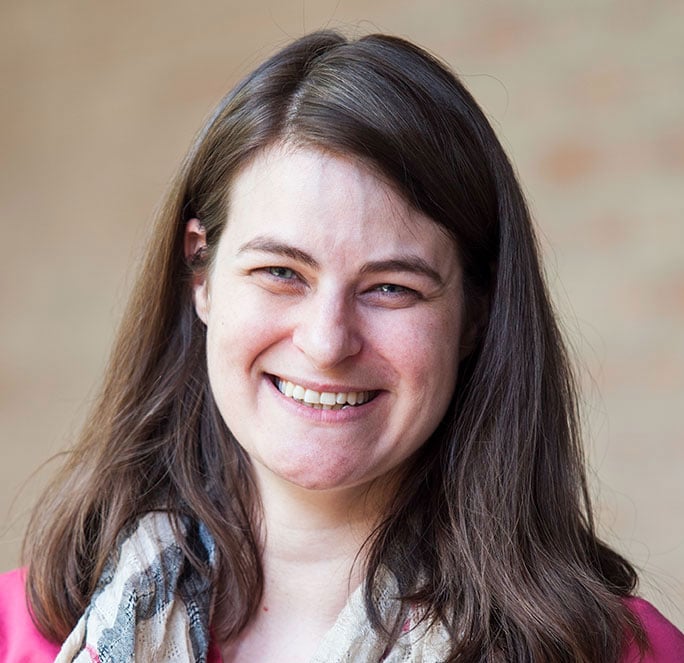Let us Lectio: "Do Whatever He Tells You"

Marriage at Cana by Giotto, c. 1304 - 1306
Memorial of Our Lady of Lourdes, Feb. 11
Steps to Lectio Divina
Start by using these steps to reflect on the Scripture verse. Then read my meditation slowly.
Lectio: Having asked for the grace to hear God's word, read the passage twice.
Meditatio: During the second reading, pause whenever so moved and reflect on a word, a sentence, or an image that strikes you.
Oratio: Speak directly to God, and open your reflection to Him.
Contemplatio: Listen contemplatively for any response God might choose to make. Remember that God responds to us at times with loving silence.
The Scripture
From the optional memorial Gospel for February 11, 2019 Memorial of Our Lady of Lourdes (John 2:1-1)
There was a wedding at Cana in Galilee,
and the mother of Jesus was there.
Jesus and his disciples were also invited to the wedding.
When the wine ran short,
the mother of Jesus said to him,
"They have no wine."
And Jesus said to her,
"Woman, how does your concern affect me?
My hour has not yet come."
His mother said to the servants,
"Do whatever he tells you."
Now there were six stone water jars there for Jewish ceremonial washings,
each holding twenty to thirty gallons.
Jesus told them,
"Fill the jars with water."
So they filled them to the brim.
Then he told them,
"Draw some out now and take it to the headwaiter."
So they took it.
And when the headwaiter tasted the water that had become wine,
without knowing where it came from
(although they who had drawn the water knew),
the headwaiter called the bridegroom and said to him,
"Everyone serves good wine first,
and then when people have drunk freely, an inferior one;
but you have kept the good wine until now."
Jesus did this as the beginning of his signs at Cana in Galilee
and so revealed his glory,
and his disciples began to believe in him.
Reflection
At the wedding of Cana, Mary brings the needs of the couple to her son. She does indeed intercede in this moment but not for mere material needs of an isolated couple celebrating a wedding. Rather, in light of Messianic prophecies this statement of, “do whatever he tells you,” is an implicit request and petition, and it is also Mary pointing to a greater need of the people of God.
John does not provide us with the name of this newlywed couple, but for Mary this bride and this bridegroom were not faceless individuals. Mary lived her whole life in the area of Galilee. Poor and dignified, she helped care for those around her. In this society, it was customary for a wedding celebration to last a full week. This would have been an extravagant undertaking even for those of means, and the responsibility for the wine for the full week would have been for the bridegroom to provide.
Mary, a nurturing mother, saw this young poor couple running out of wine and she was filled with pity and concern. She did not wish for these newlyweds to be shamed by their poverty, but rather be able to focus on more important things. So she comes to Jesus, presents her petition, and then tells the servants to “do whatever he tells you.”
Years ago, Mary publicly appeared to a humble and ignored girl in Lourdes, France. Through the intercession of Mary at this location, and the simple obedience of this saint, a freshwater spring was found where the faithful are able to approach in faith seeking the wholeness and healing of the Lord.
No less than this young couple and this poor French girl, Mary sees us living in the poverty of a world racked by sin. She sees us not as nameless faces, but with the concern of a nurturing mother. She sees our individual weakness and our needs. In this apparition of our Lady of Lourdes we hear Mary saying to our Lord, “They are sick, and infirmed. They are laden with the burden of sin in the world.” And it is here we hear her say again to us “do whatever he tells you.”

Callie Nowlin, MTS, is a regular contributor to the North Texas Catholic.
Scripture texts in this work are taken from the New American Bible, revised edition © 2010, 1991, 1986, 1970 Confraternity of Christian Doctrine, Washington, D.C. and are used by permission of the copyright owner. All Rights Reserved. No part of the New American Bible may be reproduced in any form without permission in writing from the copyright owner.
